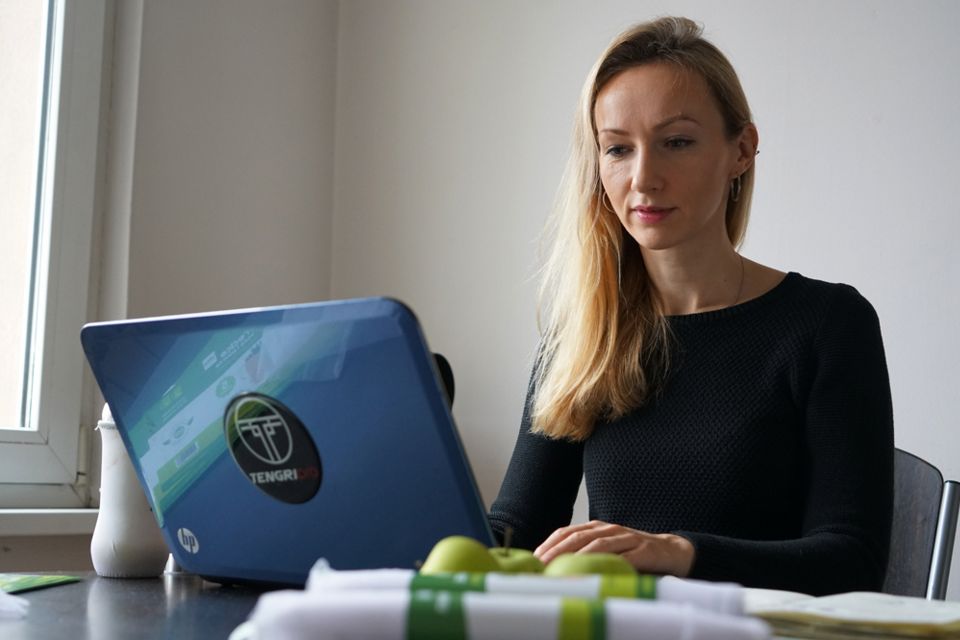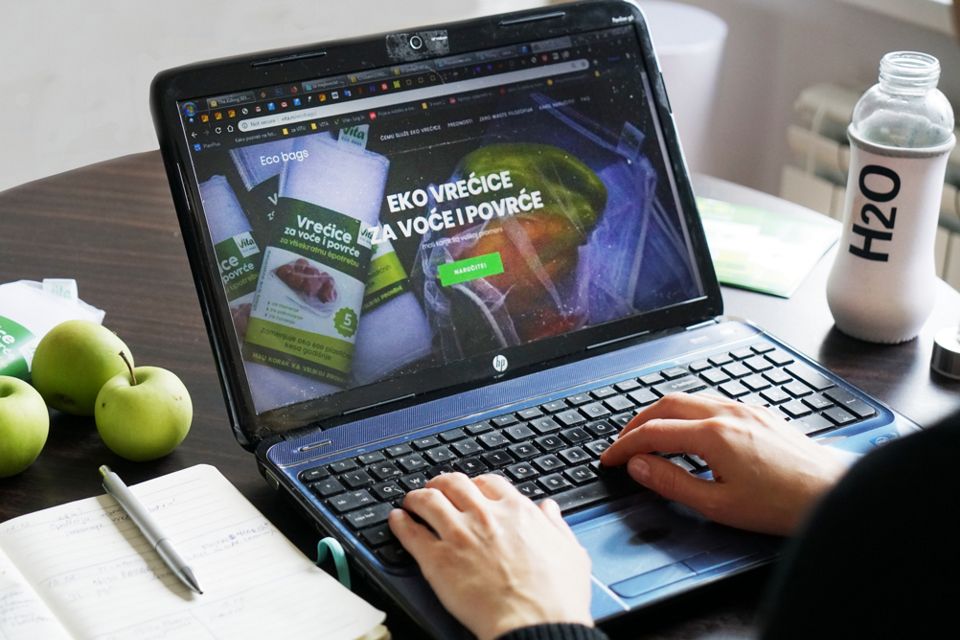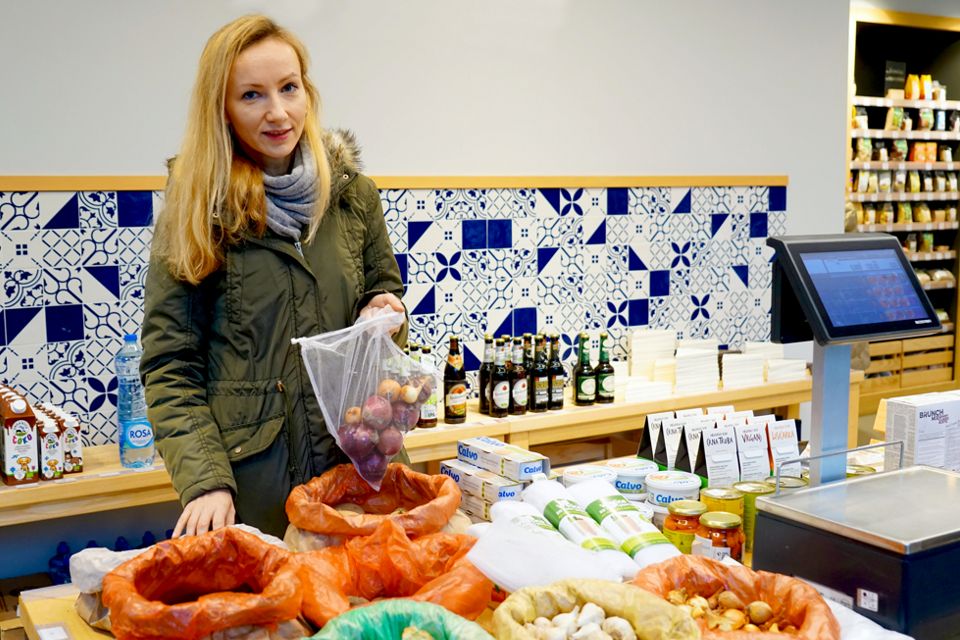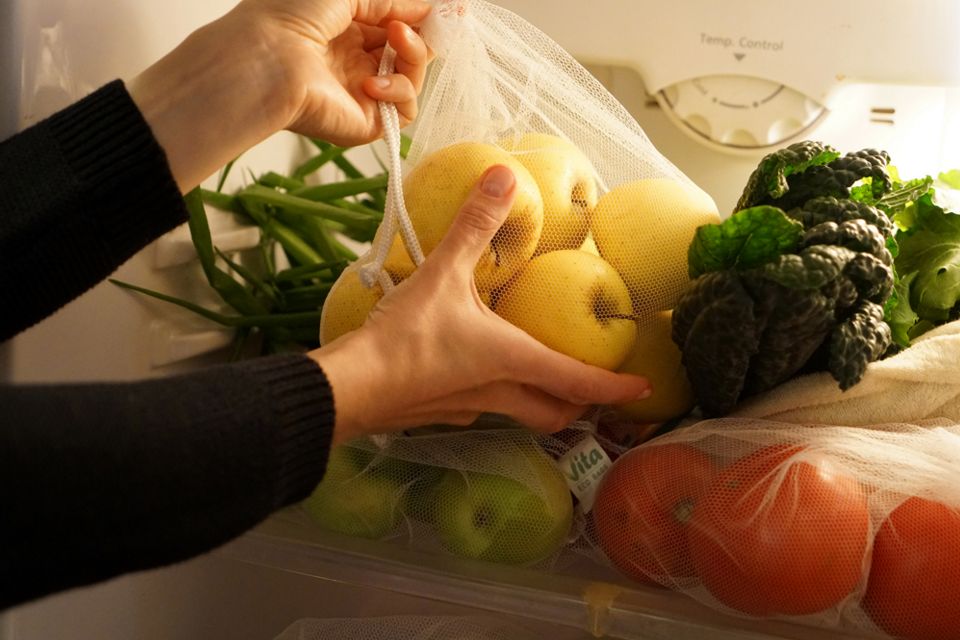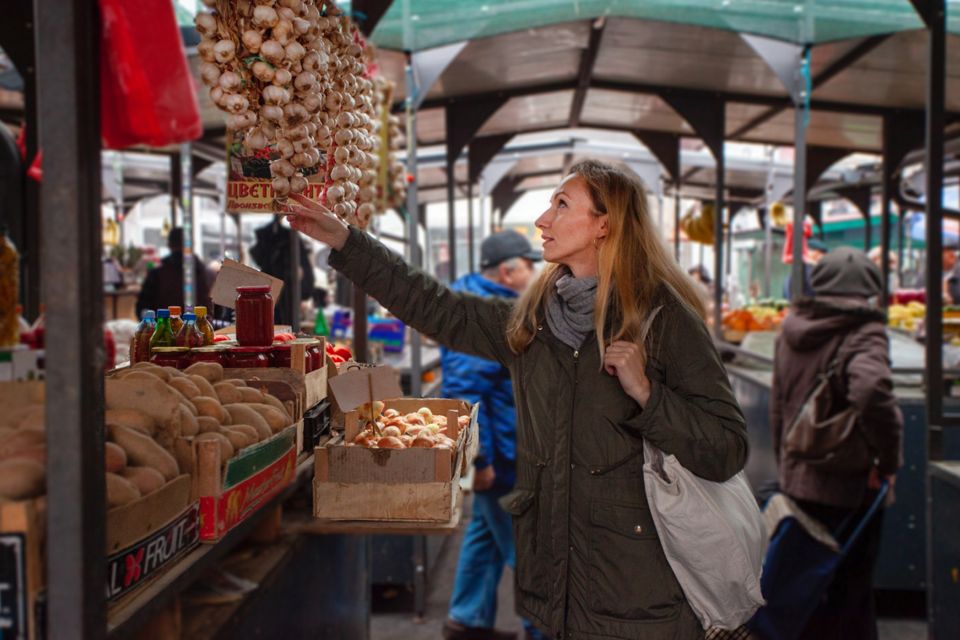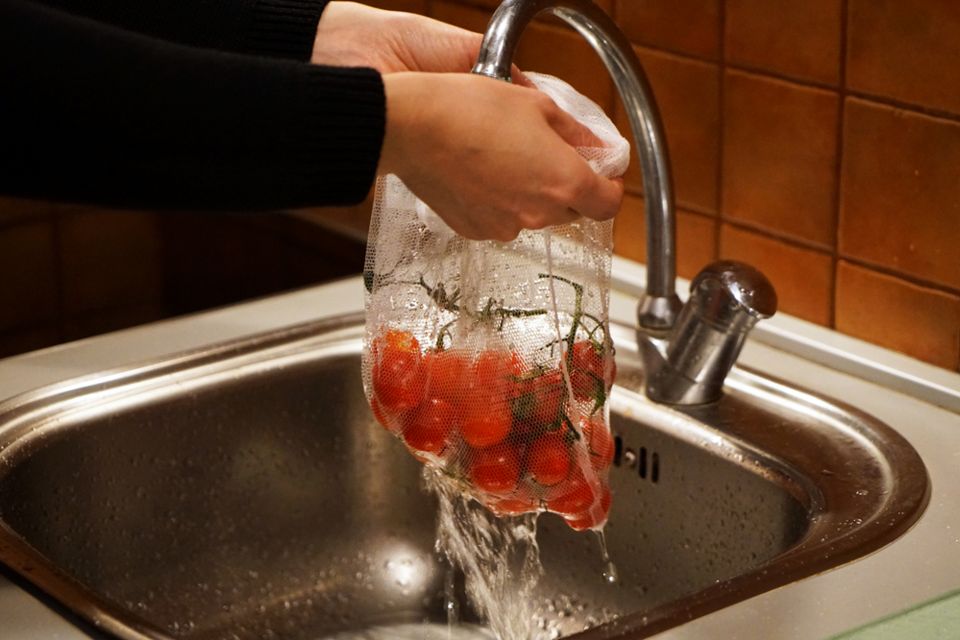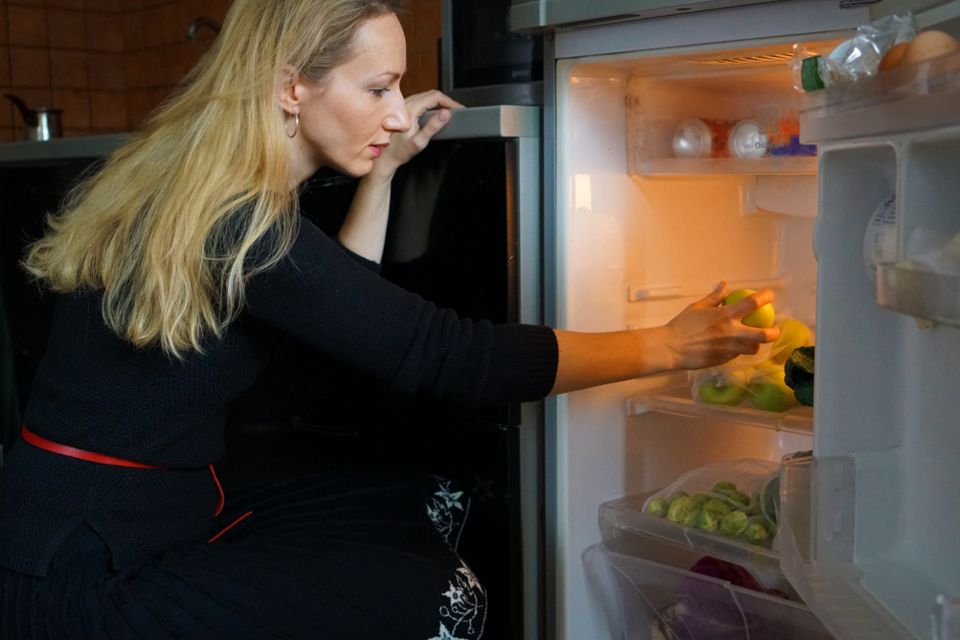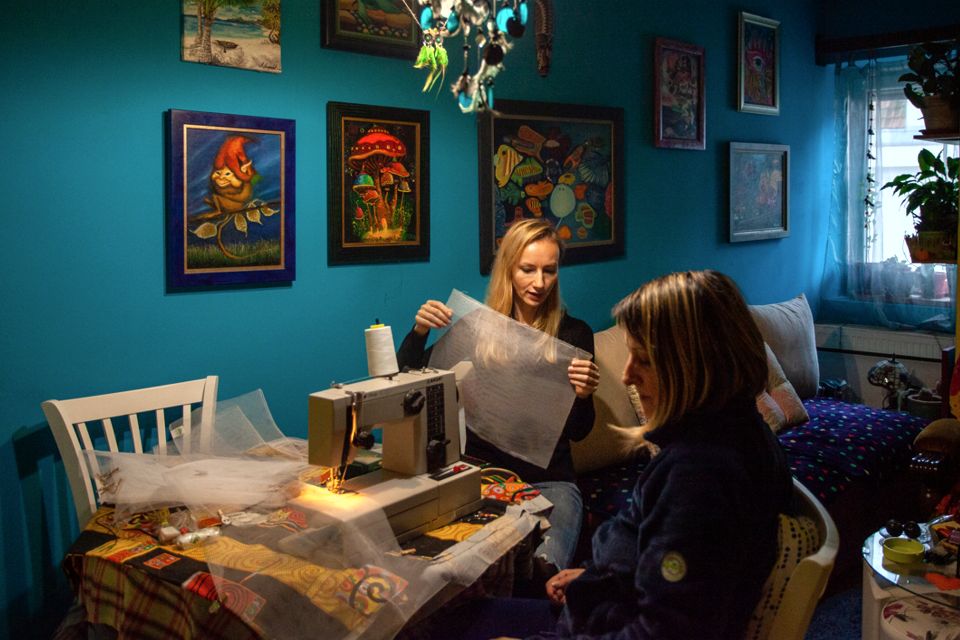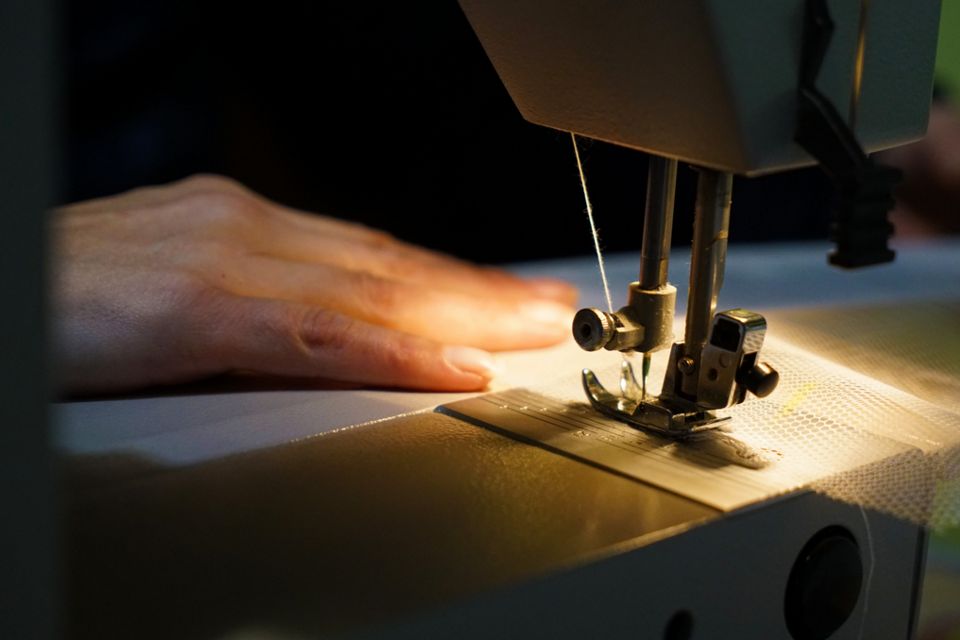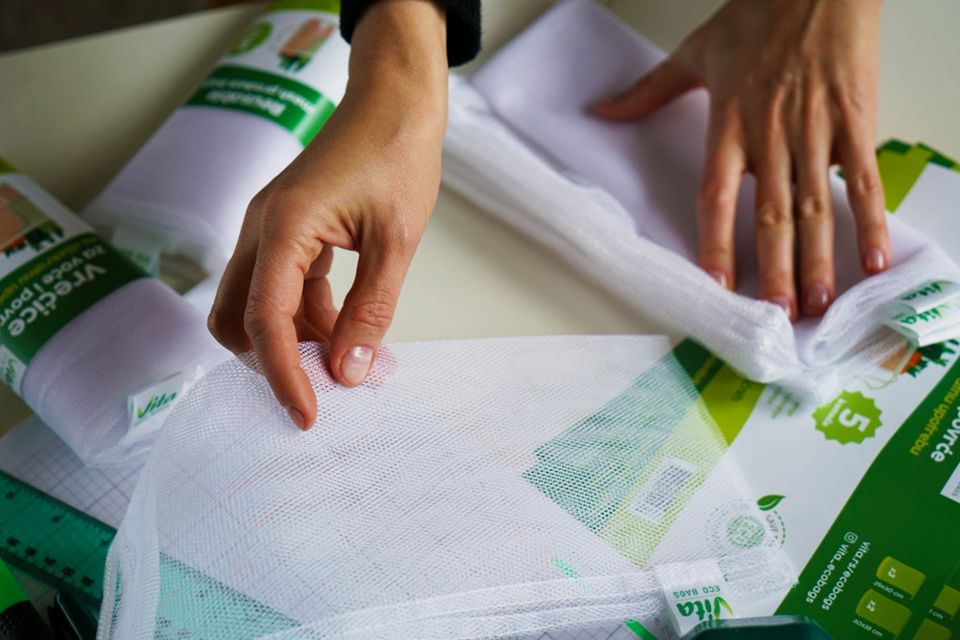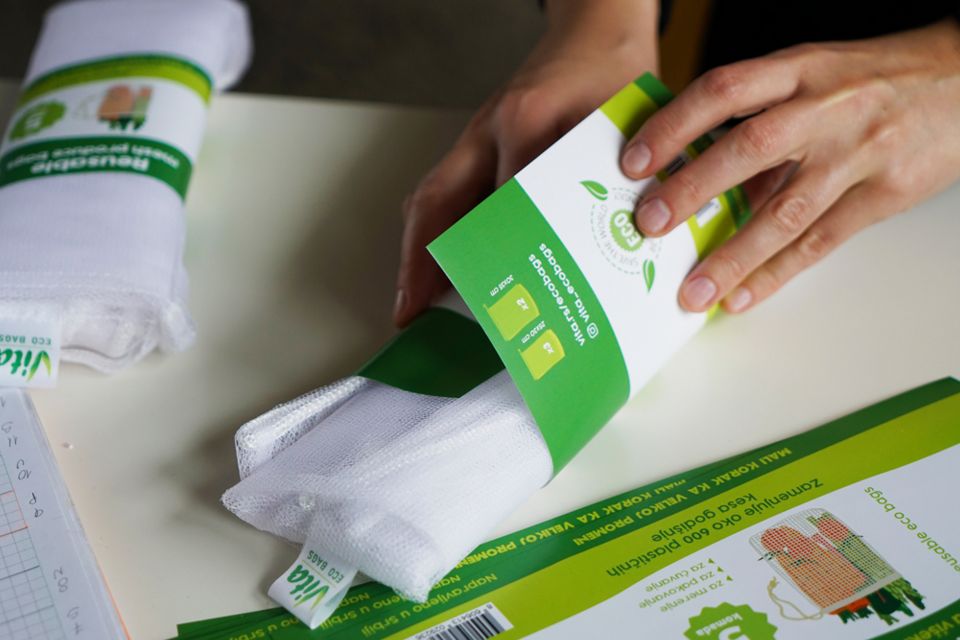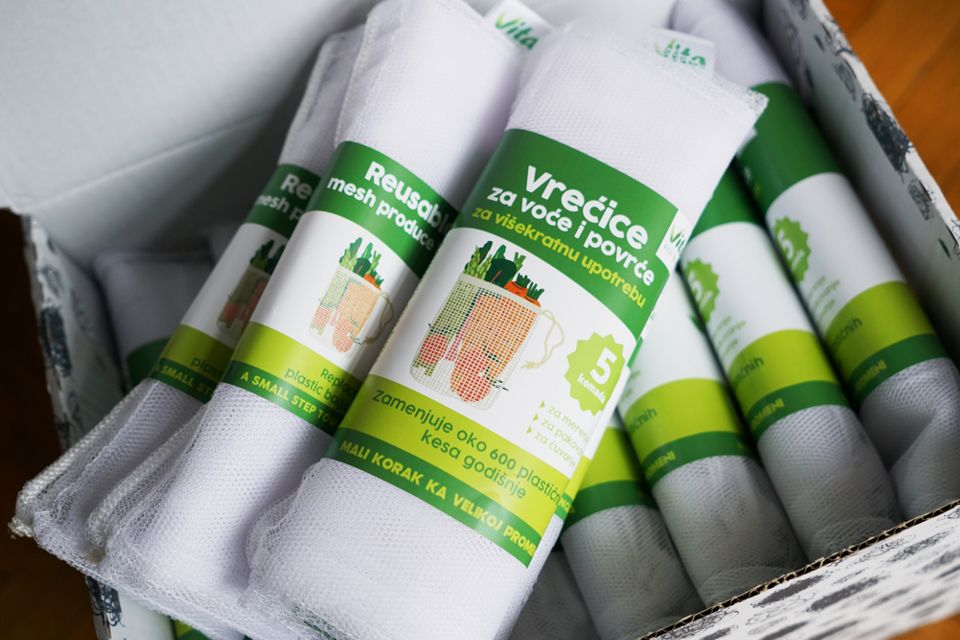Ekaterina Yakovleva: How a Serbian blogger fights for conscious consumption, bag by bag
Date:

Ekaterina Yakovleva made a reusable grocery bag for fruit and vegetables. People across Serbia now use her eco-bags as environmentally friendly alternatives to disposable plastic bags.
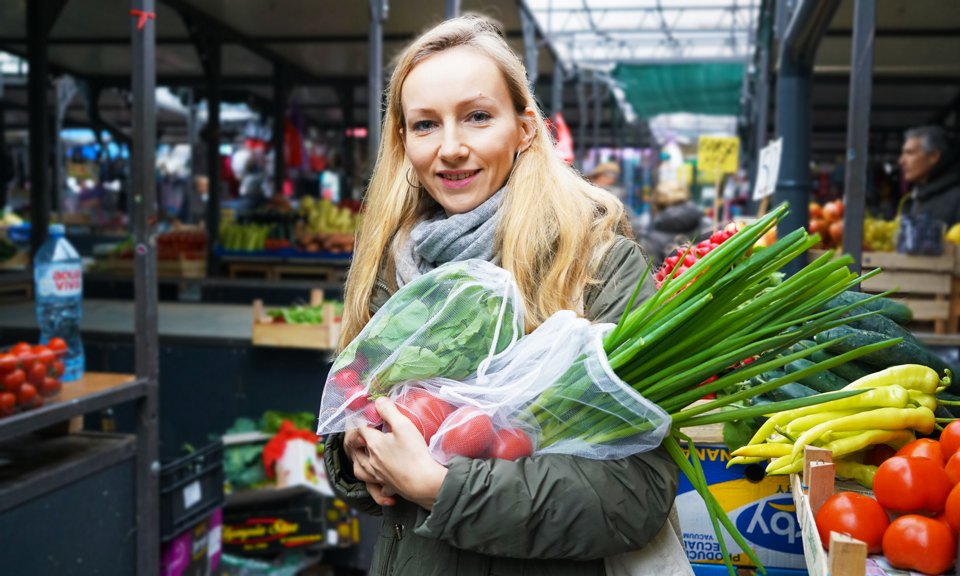
“A small step towards a big change.” That’s Ekaterina Yakovleva’s own modest assessment of her contribution to the global eco-movement. Ekaterina is happy but still stunned she managed to find her calling and the kind of business where it’s not profit alone that matters, but care for people and the environment too.
After moving from Moscow to Belgrade 15 years ago, Ekaterina threw herself into finding her own personal way to conscious consumption. With a certificate in nutrition, she started an Instablog about treating oneself and the world with care, and about conscious inner eco-culture. She didn’t go vegan right away, but at some point she came to realize that she doesn’t need animal food.
“I stopped eating meat not only because it was damaging my health, but also because it does harm to our planet,” she recalls.
An evolving concern for nature
Her vegan behavior soon resulted in changes in other spheres of her life that “brought a higher degree of responsibility for the environment with it.” Over several years, she became interested in the problem of garbage reduction and the influence of plastic on the environment.
“I just don’t understand people, who take plastic bags for every small little thing in the store, and then at the checkout ask for even more bags. We use a plastic bag for 10 minutes on average, and it (can) stay on our planet for 500 years,” Ekaterina remarks.
 We use a plastic bag for 10 minutes on average, and it (can) stay on our planet for 500 years.”
We use a plastic bag for 10 minutes on average, and it (can) stay on our planet for 500 years.”
— Ekaterina Yakovleva
Having analysed everything she buys, she concluded that plastic bags and food packaging comprise the biggest percentage of garbage in daily life. So she began thinking about how she could reduce use. Unfortunately, it was not possible to buy reusable grocery bags in Serbia.
“Shop assistants in stores and supermarkets offer disposable plastic bags when one needs to weigh fruit and vegetables. I started looking for an alternative. I learned that in other countries people use bags that can be used over and over again. I got inspired by this idea and decided to start making them for myself first,” she says.
Word travels fast
The bag proved to be practical and convenient (it’s easy to wash and dry). Most importantly, there was no way it would go unnoticed. First, Ekaterina made bags for her friends. Then her friends’ friends started asking for bags. And then, to Ekaterina’s surprise, the news about her bag went countrywide by word of mouth alone.
This eco-life hack proved to be just what people were waiting for in Serbia. “Many people told me that I picked the perfect moment,” Ekaterina says happily.
In the years she has spent in Serbia, she has gained many insights into how people and authorities feel about cleanliness and garbage. Only a few people sort garbage, partly because they are not obliged to do so by law. Around 70 percent of all household waste in Serbia in 2019 was disposable plastic.
“When I started production of my bags, some people said that my idea would not be accepted in Serbia, that there’s not enough consciousness or eco-culture around here,” Ekaterina remembers. But they proved to be wrong.
Business with a passion
Ekaterina started mass production of her bags only last fall, with the help of two seamstresses. She worked on developing a logo and the bag design, and on testing the bag for optimal weight (every bag can hold up to 4 kilos) and size.
Using polyester mesh for the bags offers a lot of advantages. “It’s a thin fabric. It adds no more than 4 grams to the groceries that are being weighed. That is why polyester is preferable to heavier cotton,” Ekaterina says. Her goal now is to switch to using recycled polyester.
Teaching people to use recyclable materials in their everyday life, and helping them understand the threat of plastics is Ekaterina’s particular passion. In her online and offline activity, she shares practical tips and encouragement for others looking to embrace a zero-waste lifestyle. She often goes to meet people at eco-events and tries to draw their attention to the importance of less consumption and minimizing the waste.
“Possible changes in those people’s lives are more important than the money I make. If I wanted to get rich, I’d choose a different kind of business,” she points out. Getting feedback from her customers is what makes her happiest.
She emphasizes, “It’s very important for the environment, that we switch from single-use culture to reusable culture.”
 It’s very important for the environment, that we switch from single-use culture to reusable culture.”
It’s very important for the environment, that we switch from single-use culture to reusable culture.”
— Ekaterina Yakovleva
Women motivate change
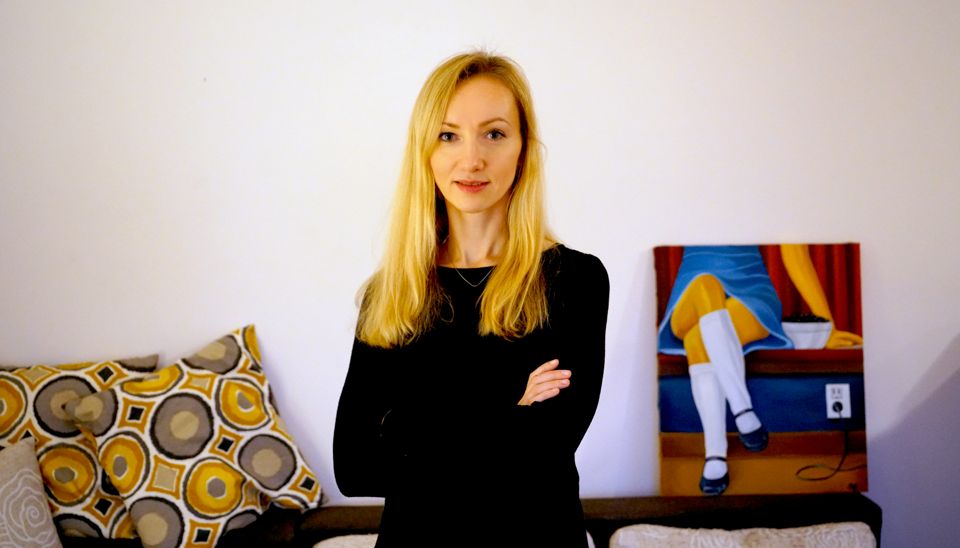
According to public opinion research on waste management in households in Serbia, released by UN Women in 2019, women directly influence changes in households, and, in general, they are more active, positive supporters of sustainability, recycling and ecology. By taking action, they can be a positive example for others.
Ekaterina of course now has a leading role in showing the ways forward, she plans to start a website with technical and legal information about separate garbage collection.
She also took part in a UN Women initiative to cut down disposable plastic usage. Together with 29 other women from the Mikser organization, a multidisciplinary cultural platform committed to strengthening social values, Ekaterina participated in a one-week challenge for citizens and cafes in Belgrade to say no to single-use plastic. The idea was to raise awareness and inspire individual change in everyday habits.
“Women are the main motivators of change, and I’m proud to be one of them,” Ekaterina says.
Women are the main motivators of change, and I’m one of them.”
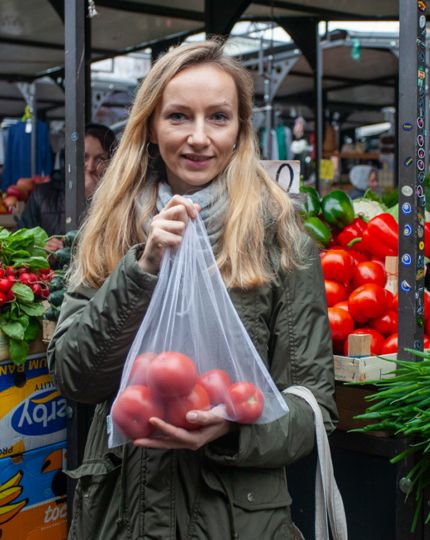
Haters and competitors
Sooner or later every blogger gets haters. They come to Ekaterina’s page to forewarn her: “We’ll all die without meat.” Or make a sarcastic observation: “I see you are selling plastic and charging a small fortune for it.” Ekaterina is not afraid of criticism, and she openly expresses her disagreement, taking special care to make her arguments clear and based in evidence.
Ekaterina keeps forging ahead regardless, and has grown to be a source of inspiration for many people. “I met a girl from Germany who’s lived in Serbia for three years. She admitted that the first phrase she learned in the Serbian language was: ‘I don’t need a plastic bag’,” Ekaterina laughs. “And she’s ever so happy now because she can tell me: ‘I don’t need a bag, because I have the eco-bags’.”
Let’s reimagine our world. Equality everywhere. How? Generation Equality has the answers! For the 25th anniversary of the Beijing Declaration and Platform for Action, we asked 25 women to probe still hidden issues and share inspiring ideas on getting transformation going, for good.
